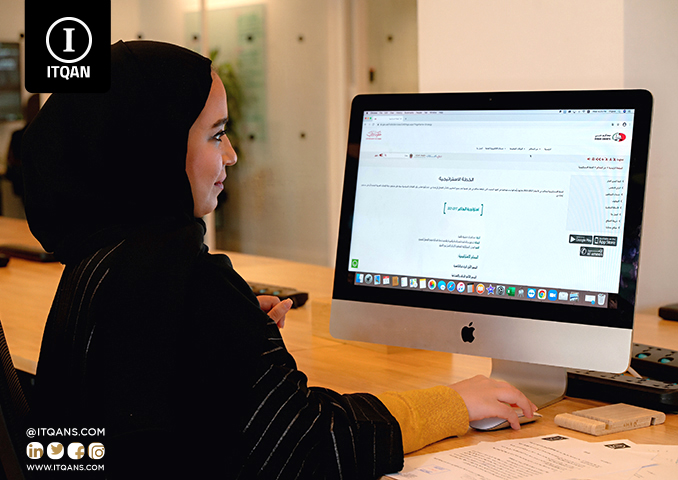UAE Laws and Regulations for Investors The United Arab Emirates is considered one of the most attractive investment destinations in the world, as it is characterized by a favorable and supportive investment environment for both local and international investors. Investment opportunities are diverse in the UAE thanks to the growing economy and continuous development in various sectors. In order to ensure a stable and safe investment environment, the UAE establishes a set of laws and regulations aimed at regulating economic activities and protecting the rights of investors. These laws are among the basic factors that contribute to enhancing investor confidence and providing them with the necessary protection, which encourages increased investments in the country. Itqan Company, as one of the leading companies in the field of investment consulting, provides integrated services to investors, including guidance and guidance on laws and regulations in the Emirates. The company works to help investors understand the complex legal and regulatory environment and ensure full compliance with local and international laws.
UAE laws and regulations for investors . Investing in the UAE includes many aspects, starting from company establishment and registration procedures, through legislation related to foreign ownership and intellectual property rights, all the way to laws related to taxes, employment, and environmental protection. These laws seek to create a transparent and fair investment environment that guarantees the rights of all concerned parties and enhances the competitiveness of the UAE economy on the global level. The UAE also provides free zones that allow foreign investors to own 100% companies while providing tax incentives and other competitive advantages. Itqan Company works to provide specialized advice to investors in these free zones, helping them make the most of the available benefits and ensuring full compliance with local regulations. With extensive experience and deep knowledge of the legal and regulatory environment in the UAE, Itqan is a reliable partner for investors seeking to achieve success and sustainability in their investments.

UAE laws and regulations for investors
جدول المحتوى
ToggleBasic requirements for establishing a company in the UAE
In the UAE, establishing a company is an important strategic step for investors seeking to take advantage of the diverse and growing market opportunities in the country. Investors have great freedom in choosing the type of company they wish to establish, whether it is a limited liability company, a joint stock company, or other forms of legal structures available. The basic requirements for establishing a company in the UAE include:
- Choosing the type of company: The investor must determine the appropriate type of company according to the specific business objectives, such as a limited liability company (LLC), a joint stock company, a sole proprietorship, or a company in a free zone.
- Company name: You must choose a unique name for the company and ensure that it complies with local laws and does not conflict with the names of other registered companies.
- Capital: Determine the capital needed to establish the company, which can vary depending on the type of company and the chosen economic activity.
- Shareholders: Determine the identities and nationalities of shareholders and each shareholder’s share in the capital.
- Government approvals: Obtaining the necessary approvals and licenses from the competent government agencies, such as the Department of Economic Development.
- Legal registration: Submit a registration application with the relevant local authorities, pay the registration fees and obtain a registration certificate proving the legality of the company.
- Opening a bank account: Opening a bank account in the name of the company and depositing the specified capital.
- Tax Compliance: Register for taxes if required, such as Value Added Tax (VAT), and comply with local tax legislation.
By choosing Itqan as a partner, investors can get the necessary support to implement these steps efficiently and effectively, helping them successfully start and manage their businesses in the UAE.
Tax advantages provided by the UAE to investors
The UAE is one of the most attractive investment destinations in the world, thanks to the many competitive advantages it offers, including an advanced legislative environment and flexible tax procedures. The UAE provides a range of attractive tax incentives that make it a preferred destination for international companies and investors, which contributes to enhancing economic growth and attracting capital and human talent. Tax advantages provided by the UAE to investors
- Not imposing a personal income tax: In the UAE, there is no personal income tax, which enhances the country’s attractiveness as an investment destination for individuals and families wishing to live and work there.
- Low or exempt corporate taxes: Free zones and special economic zones: The UAE provides a number of free zones and special economic zones, which grant companies tax exemptions on profits for specific periods of time, which contributes to reducing operating costs and increasing profits.

Procedures necessary to close a company in the UAE
Procedures necessary to close a company in the UAE
Closing a company in the UAE is a strategic decision made by businessmen for various reasons, whether due to the end of business activity, changes in corporate strategy, or other reasons. The process of closing a company requires a number of legal and administrative measures to be taken to ensure compliance with local legislation and the proper settlement of all financial and legal obligations. Procedures necessary to close a company in the UAE
- Making the decision to close the company: The board of directors or partners must make a formal decision to close the company, preferably with the approval of the majority of partners or members, in accordance with the legal system under which the company is registered.
- Settlement of financial obligations: The company must pay all debts and financial obligations incurred before closing, including supplier debts, late taxes, and government fees.
- Dissolution of employees and settlement of contracts: The company must settle its relations with employees, including paying financial dues in accordance with concluded contracts, and submitting the necessary notifications to the relevant local bodies regarding the termination of employment relations.
- Closing announcement: The company must publish an official announcement in local newspapers announcing the closure of the company and specifying the specific period for receiving claims from creditors.
- Re-liquidation of assets and final settlement: The company’s remaining assets (if any) are sold and the remaining balance is distributed to shareholders or partners according to their percentages in the capital.
- Cancellation of legal registration: An official request is submitted to the competent government authorities to cancel the company’s registration, along with submitting all necessary documents and paying the required fees.
- Obtaining a closure certificate: After fulfilling all conditions and procedures, the company will be granted an official closure certificate from the competent authorities as evidence of the completion of the closure process.
The process of closing a company in the UAE requires compliance with a set of precise and complex procedures, and it is preferable to cooperate with local legal consultants to ensure that the process is completed efficiently in accordance with local legislation.
Learn about UAE laws and regulations for investors
In conclusion, it can be said that the United Arab Emirates represents an ideal investment environment for investors from all over the world, thanks to the laws and regulations that aim to protect the rights of investors and ensure the transparency and fairness of economic activities. These laws work to create a stable and safe environment that encourages attracting investments and promoting sustainable economic growth. The various regulations contribute to providing a clear and organized legal framework that ensures compliance with legislation and facilitates doing business in the country. Itqan plays a pivotal role in helping investors navigate this complex legal framework, by providing specialized advice and high-quality professional services. The company helps investors understand laws and regulations related to company formation, foreign ownership, taxes, employment, environmental protection, and other vital areas. Thanks to its extensive experience and deep knowledge of the legal environment in the Emirates, Itqan is able to provide appropriate solutions that are compatible with investors’ needs and aspirations.
Itqan also provides comprehensive support to investors wishing to benefit from the competitive advantages of free zones in the Emirates, as these zones provide unique investment opportunities characterized by greater flexibility in foreign ownership and attractive tax incentives. By guiding investors towards the most suitable options and optimal compliance strategies, Itqan ensures that they make the most of the available opportunities. The UAE constantly seeks to modernize and develop its laws and regulations in line with global economic developments, which enhances the country’s attractiveness as a leading investment destination. This stable and supportive legal environment provides investors with the opportunity to achieve success and growth in their projects. Thanks to the continuous support of Itqan, investors can rely on a reliable partner who provides them with the guidance and guidance necessary to ensure full compliance with the laws and achieve their investment goals safely and efficiently. The UAE remains a vital center for attracting global investments, which contributes to strengthening its position on the international economic arena and achieving sustainable development.
Frequently asked questions about UAE laws and regulations for investors
What are the basic requirements for establishing a company in the UAE?
Submitting an application to establish the company with the Department of Economic Development Choosing an appropriate legal structure for the company (such as a limited liability company, joint stock company, etc.) Obtaining the necessary approvals and licenses from the relevant government agencies Opening a bank account for the company and depositing the required capital Registering the company in the commercial registry and obtaining a number Tax registration
Can foreigners fully own companies in the UAE?
Yes, foreigners can fully own companies in many free zones in the Emirates. In some areas outside the free zones, foreigners can own up to 100% based on the type of business activity and the location of the company.
What tax benefits does the UAE provide to investors?
There are no personal income taxes in the UAE. Many free zones provide tax exemptions on corporate profits for specific periods. Some economic activities are subject to a 5% value-added tax (VAT).
What are the laws related to intellectual property in the UAE?
The UAE is committed to protecting intellectual property rights, including patents, trademarks, and copyrights. Patents and trademarks can be registered with the Ministry of Economy. The UAE provides strict legal protection against violations and infringements of intellectual property rights.
What are the regulations regarding labor recruitment in the UAE?
Companies require work permits for foreign employees from the Ministry of Human Resources and Emiratisation. Companies must adhere to laws related to minimum wages, working hours, vacation periods, and working conditions. Companies are committed to providing health insurance to employees and ensuring their labor rights.
What are the necessary procedures to close a company in the UAE?
Submit an official request to close the company with the Department of Economic Development. Settle all financial and tax obligations of the company. Publish an announcement of the company’s closure in local newspapers. Submit all required documents to the registration authorities and obtain a company closure certificate.
What are the environmental requirements for investment projects in the UAE?
Projects must adhere to environmental laws and regulations issued by relevant authorities such as the Ministry of Climate Change and Environment Provide Environmental Impact Assessment (EIA) for some large projects Implement environmental protection measures and manage waste in a sustainable manner

















